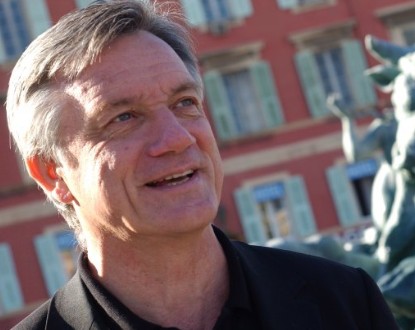The City of Nice has a substantial cultural budget and numerous national-level institutions (museums, conservatory, theater, opera, philharmonic orchestra, film library, and, even though it belongs to the State, Villa Arson). However, it has never had a genuine cultural policy capable of awakening a city often referred to by observers as a “sleeping beauty.”
Yet, a dynamic cultural policy is essential to bring a major metropolis into modernity (for example, we can mention Catherine Trautmann’s Strasbourg, Robert Vigouroux’s Marseille, and Martine Aubry’s Lille).
As the leading candidate in 2001 and 2008, Patrick Mottard advocated an innovative cultural program based on a few simple principles. Given that the situation has changed very little, he would advise the future mayor of Nice to adopt a similar orientation.
One orientation and five principles.
1. To appoint a genuine deputy for culture (in the last mandate, the responsibility was fragmented among four or five officials). This person would not necessarily be someone from “the establishment” or a “specialist,” but a political heavyweight who could symbolically serve as the 1st or 2nd deputy. Their primary mission would be to ensure the cross-sectional coordination of municipal cultural policies (somewhat in the spirit of “Mars aux Musées”).
2. To make culture not a marginal issue or a cherry on top but the priority of the entire municipality. A founding session of the City Council reserved for culture could be scheduled within the first months of the mandate. This would be followed by regular meetings with all the involved deputies (education, tourism, finance, urban policy, etc.) alongside their colleague in charge of culture to assess the program’s progress.
3. To redirect, with great voluntarism, the cultural policy towards broadening the audience. To arbitrate as often as possible in favor of generating a cultural demand rather than prioritizing a supply-focused policy that always benefits the same audience. For this, the City Hall can develop an ambitious mediation policy directed at primary and nursery schools under its responsibility. It can also require that each subsidy be conditional upon a contractual commitment from the association or institution to develop a policy of audience diversification.
4. To leverage Nice’s geographic and historical assets to make it a capital, or even the European capital of cinema and audiovisual (“Nicecitta”?), by relying on Riviera studios, ESRA, the Film Commission, the Cinematheque, Mercury, L’Éclat, and… the proximity to Cannes).
5. To invent a flagship event, a leading event without which there is no clear visibility of a modern cultural policy. For this, one should not count on the Carnival (too difficult to reposition) nor on the Jazz Festival (trivialized since its move from the Cimiez arenas to Albert 1st Garden). The international public’s craze for TV series might provide a space for such an event. However, it will be necessary to overcome the obstacle of Monaco.
One orientation, five principles, enough to advance two requirements:
that which should lead an ever-growing number of residents in Nice to access culture by creating desire; that which should make Nice a culturally recognized city to the point of becoming one day, like Lille or Marseille, a European capital…


